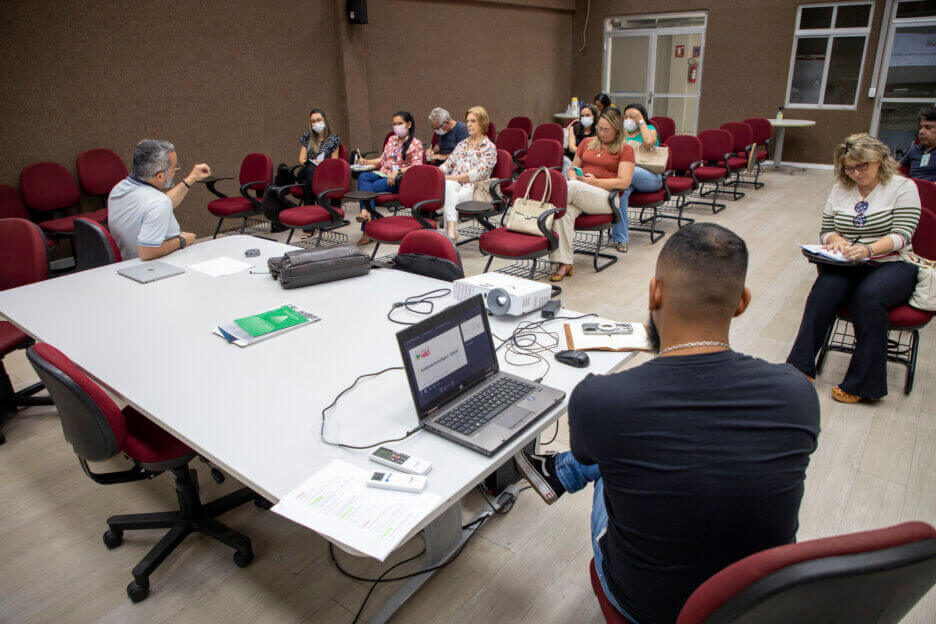Bruno Cássio – LAIS/UFRN Communication Advisor
The representatives of the Municipal Health Secretariats met on Monday morning (13) with the executive director of the Laboratory for Technological Innovation in Health at the Federal University of Rio Grande do Norte (LAIS/UFRN), Ricardo Valentim, to discuss the implementation of the Salus platform, an intelligent monitoring system for syphilis cases that connects the work of primary care and epidemiological surveillance.
One of the novelties announced during the meeting is that, after Natal, the first capital of Brazil to receive equipment for the installation of the situation room for monitoring syphilis cases, cities in the metropolitan region and in the interior of the state will also benefit. “Besides the system, state-of-the-art equipment will be installed for data processing, videoconferencing, and congenital syphilis screening, at no cost to the municipalities,” emphasized Ricardo Valentim.
The discussion took place in the auditorium of UFRN’s Distance Education Department and gathered health managers from the cities of Parnamirim, São Gonçalo do Amarante, Macaíba, Nísia Floresta, Ceará-Mirim, Messias Targino, and João Câmara. The Secretary of Health of Nísia Floresta/RN, Lidiane Rodrigues da Costa, was enthusiastic about the partnership: “yes, we are interested in joining this program and we will be available to receive you and develop this work that will be very important for the municipality”.
According to Elizabeth Carrasco, Deputy Health Secretary of Parnamirim, a city that has already adhered to the Salus system, the city has a maternity hospital that performs an average of 200 prenatal follow-ups per month: “this Salus tool will monitor and further qualify our prenatal care so that this pregnant woman arrives at the maternity hospital and is followed, cared for, and treated”. The forecast is that the equipment for the situation rooms will be available in two months.





